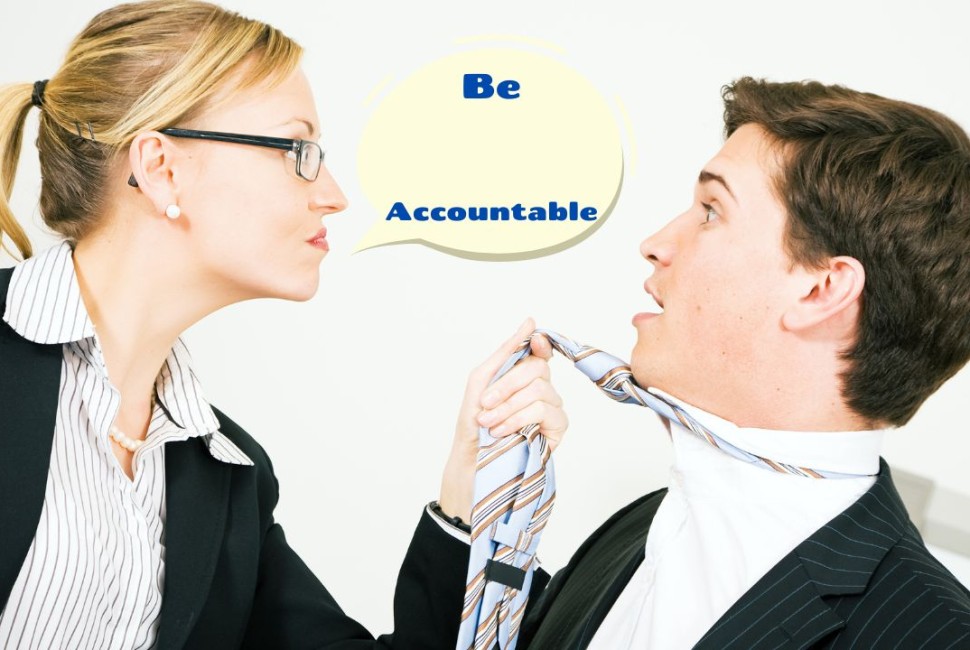Understanding Accountability
Many of us have heard the term accountability or accountable, but what does it mean? According to Merriam-Webster’s online dictionary, it has two meanings, and I quote: “1) subject to giving an account: answerable, 2) capable of being explained: Explainable. This article discusses its origins, when, why, and how to be accountable. The word accountable, according to etymonline.com, refers to “literally to be called to account, c.1400 (mid-114c Anglo-French) from Old French acontable” There are seven main types of accountability known today: Professional, Corporate, Personal, Public, Financial, Ethical, and administrative.
Patients or clients may file a malpractice lawsuit against a professional if they feel their decision negatively affects their outcome. Thus a variety of professionals now find the need to have not only the required G&L or (General Liability) Insurance but also E&O (Errors and Omissions more known today as P&L (Professional Liability). The one on most people’s radar today is Professional Accountability, which deals with your actions and those you take on others’ behalf, most often found in professional fields such as law and medicine.
Another type of popular accountability is Corporate Accountability, and many organizations are requested to set aside a recurring budget for CSR (Corporate Social Responsibility) plans. Sometimes this might cover things like sponsoring Food Drives and Earth Preservation Days and maintaining the environment for the future. Companies implement these strategies to ensure that adverse consequences are minimal, if any.
When people are at home with neighbors or friends, a trait expected in friendship is being personally accountable. Each day the understanding of personal accountability at work and outside frequently gets lost in the shuffle. Thus, do you take ownership of the client’s problems or say that it’s not my job and someone else will handle it later? Therefore, if you commit to a task or project, does someone have to stay on you until you do it constantly, or will you keep your word to your word? When you make a mistake, apologize and vow not to do that again. The result aims to be efficient and accountable or responsible for your actions.
Being personally accountable is a two-way street, but some in the world live on the get first and never give. People that commit to helping or doing something for you and don’t follow will inevitably leave a bad taste in your mouth. Next time you won’t ask for their help and may also choose not to be available when they ask for use next time. Everyone starts with a clean slate of having a reputation of being accountable until they do something that betrays or weakens our trust in them. Knowing that you can’t count on someone will make you want to ask for help or help and often change your mind if you even want to associate with them. You may find that even friendly people are not always personally accountable.
Whether serving as a government leader, manager, business owner, sales professional, or group leader, accountability is vital for your success with others. The type of accountability I’m referring to is public accountability, which is the central act in employees’ work lives. Public accountability is the building block for creating a fair, just, ethical, and empathetic work culture.
Financially Accountable companies know their bills, loans, and payments they will make. Thus, knowing a company’s fiduciary or financial responsibility is key to the organization’s continual growth. Company’s always want to do what’s best for the client, employee, and the company, but that will not be around if they are not profitable.
Having a profitable company with accountable people is essential but remember, they all must understand and choose to act ethically. For example, suppose a co-worker or contractor works in the wrong manner. In that case, the company should immediately issue an apology letter and correct the situation at the company’s expense if applicable. Remember that ethics are not just limited to work but also pop up in our personal lives. Maybe a friend wants you to do something, and you disagree with it ethically; they should understand and respect your decision not to assist or help them.
Lastly, we have all worked with companies, and we hear this is not part of my job responsibility, or I don’t have the authorization to do that. A person/persons or team in the organization can decide on a specific matter. Setting up accountability teams and critical people based on respective tasks/functions is required to keep a company flowing.
Today, you learned many ways to be accountable, but they will only make you that person if you choose to adopt them in your everyday life. Thus I invite you to become a liable person and create teams and organizations that will be responsible for their actions every day.
Check out the full story on linkedin at
https://www.linkedin.com/pulse/understanding-accountability-john-morley/

Comments :
No comments found